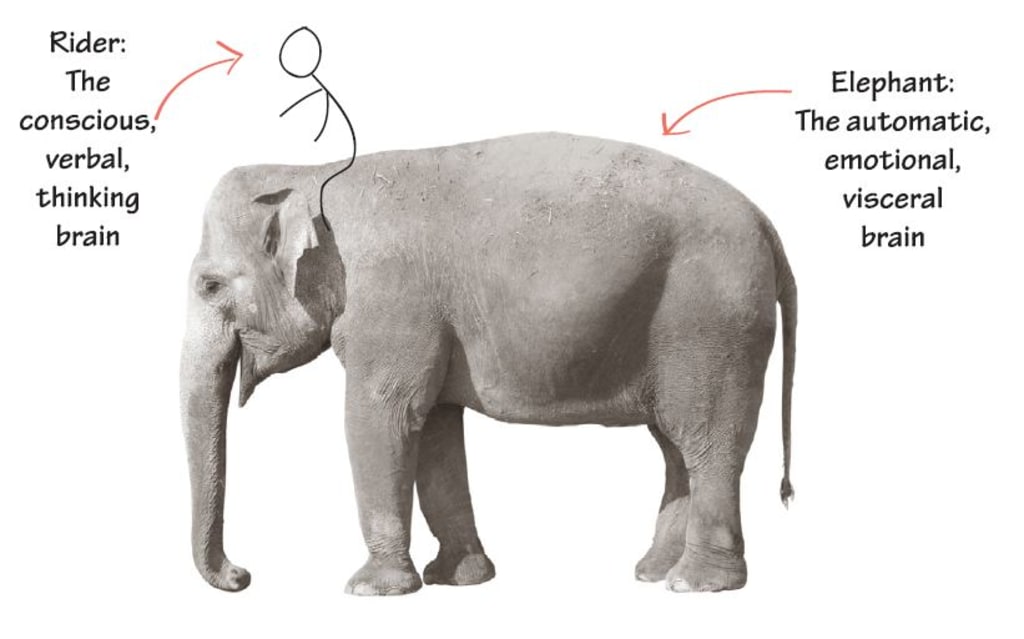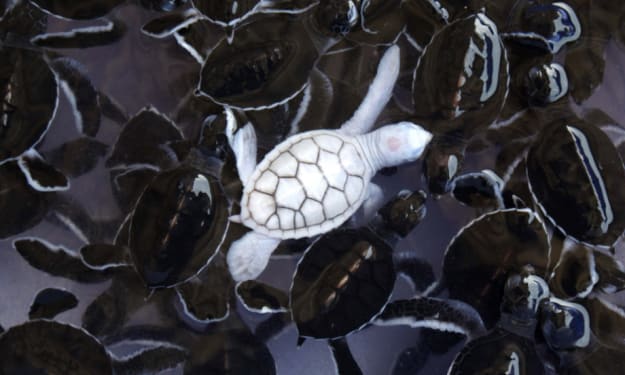Human Connection Is Beyond Biology or the Happiness Hypothesis: A Review
An Exploration in the Psychology of Social Interactions

What is it about us that makes us so excessively self-absorbed that we are unconscious of ourselves? Why do we constantly resist connection? Let me offer some reflections.
Our brains are programmed to respond to threats faster than it does to opportunities. It is a survival mechanism that allows us to recognize threats before we are even conscious of them. In psychology, it is referred to as the negativity bias. (Haidt 29) All the neural impulses you get from the eyes and ears go first to your thalamus, which then sends them to a sensory processing area in the cortex. (Haidt 30) From there, information is brought to the frontal cortex. (Haidt 30) However, in this process, the neural impulses don’t reach your frontal cortex fast enough for you to protect yourself. The amygdala, which is directly under the thalamus, is connected the part of the brain stem that activates the fight or flight response. (Haidt 30) It dips into the unprocessed information in your thalamus and recognizes patterns associated with danger. (Haidt 30) So, picture a snake coming at you: you would get a bad feeling and back away, realizing moments later why it was you did so. The amygdala not only triggers a response to danger, but also shifts your entire brain to a withdrawal orientation. (Haidt 31) “A flash of fear makes you extra vigilant for additional threats; you look at the world through a filter that interprets ambiguous events as possible dangers.” (Haidt 31) This is the same reason why we are hit with a pang of fear whenever we want to talk to someone in the metro. And why we aren’t open to people.
This brain process, that we have no control over, has been overly translated into our social interactions. In the capitalist system that we reside in, we are encouraged to be selfish in order to succeed. We are made to believe that we should not attach ourselves. This makes it easier to kill feelings of humanity and continue to make money. You see it everywhere. Love sucks. People suck. Life sucks. Money is good. Success. Success. Success.
Our society and our brains have trained us to not connect with people. If someone is hurt after a break up, they have an extremely negative view on love. They are very careful with their future relationships not to become too connected, in order not to get hurt. This is why we have surface conversations. If you have been insulted, you automatically go into offense mode because you are hurt. You blindly try to hurt the other as a defense mechanism. Emotions change your thoughts. It depends on the person, yes. I have met many people who can move past that fear and talk to anyone. However, the great majority of the population is not like that.
We protect ourselves. At what cost? At the cost of never deeply connecting with people again, or having feelings for them, or becoming passionate about human rights. At the cost of feeling alone and slightly disconnected from the world. But if you don’t think about it too much, it’s okay. You’ll forget. But do we really want to live unconscious lives with this little time we have? In our day and age, with the hate, selfishness and defensiveness that’s perpetuated, why do we allow ourselves to encourage it? Maybe not actively, but unconsciously. Without working against this brain process, and without actively trying, we are encouraging this hatred and disconnect. We have become an overly negative society where positivity is regarded as naïve or is simply childish. Truthfully, I believe we are jealous of those people. We are jealous of those who have been knocked down over and over again, only to step up and be even more open to the world. These people aren’t naïve. They have been hurt and they have suffered, but they made a choice: to let go. They let go of their pain and they are happy for it. I am not saying negative people are not happy. That’s not what this is about. This is about connection. I believe we need to actively try to change. Perhaps it won’t help the world itself, but it’ll help our own. Yes, you’ll get hurt. But at least you tried. At least you didn’t go on blindly surviving life instead of living it. Take charge of your thoughts. Think critically. Do more than survive.
Works Cited
Haidt, Jonathan. The Happiness Hypothesis. Basic Books, 2006.





Comments
There are no comments for this story
Be the first to respond and start the conversation.